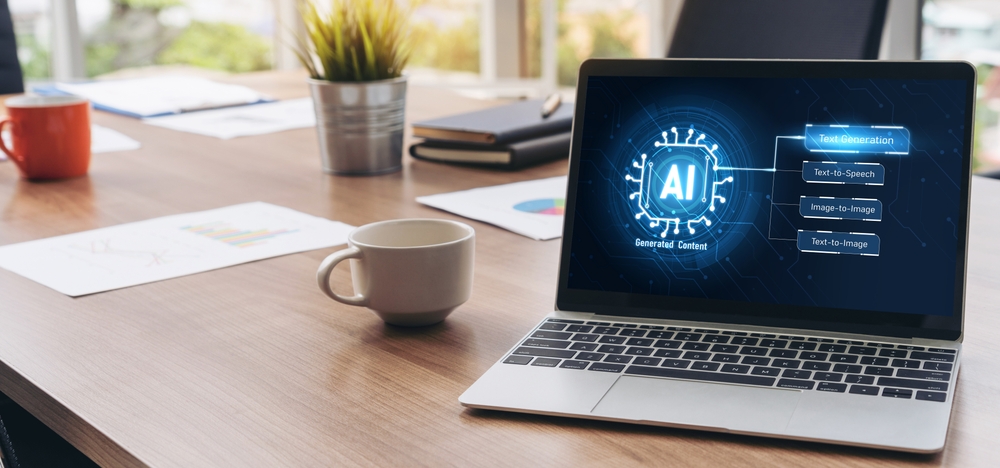The evolution of artificial intelligence (AI) is no longer a distant notion but a present reality rapidly shaping various facets of our world. From healthcare to entertainment, AI’s impact is vast and multi-disciplinary. Its capacity to process large datasets through machine learning offers promising opportunities and challenges that could redefine industries. While AI may hold the potential to revolutionize our future, its implications need careful consideration to balance innovation with ethical responsibility.
Expanding Horizons in Healthcare
Machine learning in healthcare holds the potential to transform diagnostics, personalize treatment, and streamline administrative processes. Algorithms can, for instance, analyze medical imagery to identify patterns and anomalies potentially missed by human eyes.
While AI-driven diagnostics could lead to earlier and more accurate detection of conditions like cancer, ongoing research is vital to ensure reliability and mitigate risks. Moreover, predictive analytics might lead to tailored treatments, although ensuring patient privacy and data security remains paramount.
AI and Personalized Education
The education sector is witnessing AI-driven personalized learning experiences that could cater to individual student needs. Machine learning algorithms can assess a student’s strengths and weaknesses, adapting curriculum to enhance learning outcomes.
While AI may craft individualized educational journeys, educators emphasize that human intuition and empathy are irreplaceable facets of teaching. An optimal blend of AI tools and human insight could potentially enrich learning environments, provided there is ongoing evaluation of AI’s role in education systems.
Transforming the Workplace
AI is poised to redefine job roles and industries, offering efficiency but also posing questions about job displacement. Automation could augment productivity, taking over repetitive tasks and allowing employees to engage in more creative endeavors.
However, the transition might require significant retraining and education initiatives to equip the workforce for AI-era demands. While AI could elevate work efficiency, it is crucial to address the socio-economic implications to ensure a balanced, equitable transformation.
Revolutionizing Urban Living
Smart cities powered by AI technologies could fundamentally alter urban living. AI-driven solutions might manage traffic systems, energy consumption, and public safety with increased efficiency. For instance, machine learning can analyze traffic patterns to reduce congestion and emissions.
Yet, deploying these technologies necessitates careful planning to protect citizens’ privacy and avoid over-reliance on automated systems. With responsible governance, smart cities could potentially enhance quality of life in diverse communities.
Ethical and Privacy Concerns
The rise of AI-driven systems introduces complex ethical and privacy challenges. Machine learning relies heavily on data, leading to concerns about data security and individual privacy rights.
While AI systems are designed to improve efficiency and innovation, the risk of algorithmic bias and data misuse remains a significant concern. Ensuring transparent, accountable AI development and implementation processes could mitigate these risks and foster trust in AI systems.
The Role of AI in Climate Change
AI’s potential contribution to climate change mitigation is gaining attention as environmental challenges intensify. Machine learning could potentially enhance predictive models for weather forecasting, optimize resource consumption, and enable innovative solutions for carbon reduction.
Although AI tools offer possibilities for addressing climate issues, comprehensive global strategies and collaborations remain essential. Balancing technological prowess with environmental stewardship may indeed influence the trajectory of sustainable development.
Navigating the Future
As AI continues to advance, striking a balance between innovation and ethical considerations is crucial. In the quest for progress, the involvement of diverse stakeholders, including technologists, policymakers, and the public, will likely shape AI’s trajectory in society.
Collaborative efforts may establish frameworks that govern AI ethically, generally benefiting all sectors. Continuing dialogue about AI’s impact and integration is essential to harness its potential responsibly.
The Future Is Now
The future of AI holds exciting prospects that could transform multiple industries and improve quality of life. While the benefits are manifold, nuanced challenges require thoughtful and cautious navigation.
The potential for significant societal shifts underscores the need for inclusivity, transparency, and ethical considerations. Collaborative efforts may help form a balanced approach, aligning AI development with broader societal values. The way forward involves embracing AI’s potential while conscientiously addressing its implications.

